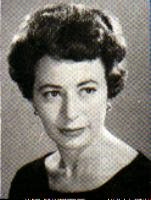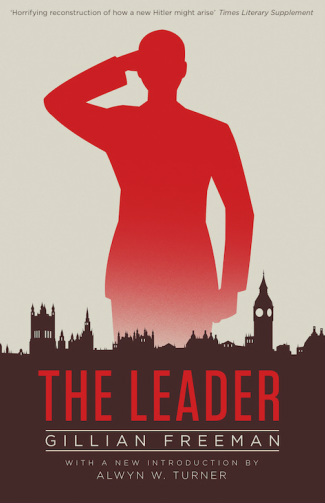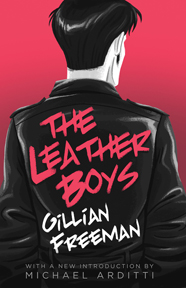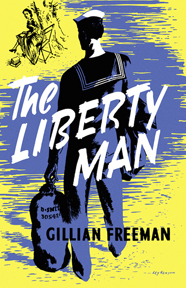|
BOOK DETAILS
Trade paper ISBN-13: 978-1939140906 List Price: $16.99 U.S. Pages: 224 Published: 2014 |
The Leader (1965)
Gillian Freeman With a new introduction by Alwyn W. Turner Book Description
Vincent Wright is a failure. Now in his mid-thirties, he’s stuck in a dead-end job as a bank clerk and still lives with his mother. But he knows who is to blame for the shortcomings in his life: blacks, Jews, and immigrants, who are responsible for most of what’s wrong with Britain today. After meeting a retired army officer who shares his passion for collecting Nazi paraphernalia, Vincent has a brilliant idea: the nation needs a new leader to rescue it from its decline – why not him? As he travels the country, giving speeches and using his charisma and oratorical gifts to recruit like-minded followers to his new Britain First party, we watch in horror while Vincent begins his terrifying and seemingly inexorable rise to power. . . . With the recent surge in popularity of far-right political parties across Europe, Gillian Freeman’s sixth novel, The Leader (1965), remains as chillingly relevant today as when first published. This edition, the first in more than 40 years, includes a new introduction by Alwyn W. Turner. Freeman’s classics The Liberty Man (1955) and The Leather Boys (1961) are also available from Valancourt Books. |
reviews
‘Brilliant study of neo-Nazi anti-Semitism ... Gillian Freeman is among the finest contemporary novelists.’ – Brigid Brophy, New Statesman
‘Undoubtedly the best of her novels ... an exact and finely observed account of the lunatic right-wing fringe in Britain. I recommend this very strongly.’ – Oxford Mail
‘Gillian Freeman's perception of psychological and sociological drives is combined with an ability to communicate them in suspenseful entertainments. … The implications grip the imagination.’ – Kirkus Reviews
‘Horrifying reconstruction of how a new Hitler might arise.’ – Times Literary Supplement
‘Undoubtedly the best of her novels ... an exact and finely observed account of the lunatic right-wing fringe in Britain. I recommend this very strongly.’ – Oxford Mail
‘Gillian Freeman's perception of psychological and sociological drives is combined with an ability to communicate them in suspenseful entertainments. … The implications grip the imagination.’ – Kirkus Reviews
‘Horrifying reconstruction of how a new Hitler might arise.’ – Times Literary Supplement
ALSO AVAILABLE THROUGH ONLINE RETAILERS
MORE TITLES BY THIS AUTHOR
AUTHOR BIOGRAPHY

Gillian Freeman was born in London in 1929. She earned her degree with honours in English literature and philosophy from the University of Reading in 1951 and afterwards worked as a copywriter, schoolteacher, reporter, and literary secretary to the novelist Louis Golding before embarking on a literary career of her own. In response to an advertisement placed by the fledgling literary agency of Anthony Blond, Freeman submitted the manuscript of her first novel, The Liberty Man, which went on to be published by Longmans and was one of the best reviewed novels of 1955. By 1961, Blond had his own publishing house and wanted to publish a ‘Romeo and Romeo’ novel with working-class gay protagonists; the result was The Leather Boys, published under the pseudonym of Eliot George. The book was well received and went into numerous paperback printings in the US and UK during the 1960s and ’70s before Gay Men’s Press reprinted it in 1985 as part of its Gay Modern Classics series; it was also adapted for Sidney J. Furie’s Golden Globe-nominated 1964 film, for which Freeman wrote the screenplay.
Freeman’s other novels include The Leader (1965), a disturbing ‘what if’ story about a Fascist’s rise to power in Britain; The Alabaster Egg (1970), a historical novel whose title refers to a gift from the gay King Ludwig II to his lover that later finds its way into the possession of a young woman in Nazi Germany; Nazi Lady (1978), the fictional diaries of a woman of the Third Reich; and An Easter Egg Hunt (1981), the tragic story of a young girl in Edwardian England who disappears from a boarding school on Easter Sunday. More recently, Freeman’s His Mistress’s Voice (1999) and But Nobody Lives in Bloomsbury (2006) have been published by Arcadia Books.
In addition to her novels, Freeman has written a number of screenplays, including That Cold Day in the Park (1969) and I Want What I Want (1972). Her nonfiction works include the influential study of pornography The Undergrowth of Literature (1967) and Ballet Genius: Twenty Great Dancers of the Twentieth Century (1988), the latter co-authored with her husband, the novelist and ballet critic Edward Thorpe. Freeman also wrote the scenario for Sir Kenneth MacMillan’s immensely successful ballet Mayerling, which premiered in London in 1978 and which has since entered the repertoires of ballet companies all over the world.
Gillian Freeman and Edward Thorpe have two daughters and live in London.
Freeman’s other novels include The Leader (1965), a disturbing ‘what if’ story about a Fascist’s rise to power in Britain; The Alabaster Egg (1970), a historical novel whose title refers to a gift from the gay King Ludwig II to his lover that later finds its way into the possession of a young woman in Nazi Germany; Nazi Lady (1978), the fictional diaries of a woman of the Third Reich; and An Easter Egg Hunt (1981), the tragic story of a young girl in Edwardian England who disappears from a boarding school on Easter Sunday. More recently, Freeman’s His Mistress’s Voice (1999) and But Nobody Lives in Bloomsbury (2006) have been published by Arcadia Books.
In addition to her novels, Freeman has written a number of screenplays, including That Cold Day in the Park (1969) and I Want What I Want (1972). Her nonfiction works include the influential study of pornography The Undergrowth of Literature (1967) and Ballet Genius: Twenty Great Dancers of the Twentieth Century (1988), the latter co-authored with her husband, the novelist and ballet critic Edward Thorpe. Freeman also wrote the scenario for Sir Kenneth MacMillan’s immensely successful ballet Mayerling, which premiered in London in 1978 and which has since entered the repertoires of ballet companies all over the world.
Gillian Freeman and Edward Thorpe have two daughters and live in London.




